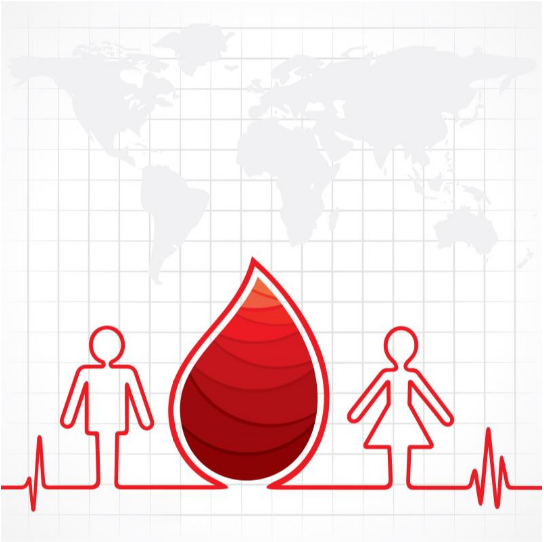
In India, around 10,000 babies are born with thalassemia every year. More alarmingly- almost one in five people carry the genetic trait of the disease. Thalassemia is most prevalent among people of Italian, Greek, Middle Eastern, Asian, or African descent.
Unfortunately, the disease is inherited from parents through genes. If a family member has thalassemia, you have a family history of the condition, which means you may carry the gene change. This becomes a significant complication – especially when trying to build a family. Preconception counselling can help people make important decisions when they understand the risks of passing this genetic trait to their children.

Before diving deeper into preimplantation genetic screening (PGS) or preimplantation genetic testing (PGT) for thalassemia, let’s learn more about the condition.
Thalassemia is a genetic disorder affecting the body’s ability to produce healthy red blood cells and adequate haemoglobin, the protein in red blood cells responsible for transporting oxygen.
This condition often leads to anaemia, which is characterised by a deficiency of healthy red blood cells. While many individuals with thalassemia live healthy lives, the condition can sometimes lead to severe health complications and, in extreme cases, may be fatal.
Symptoms of thalassemia can appear early in childhood and include fatigue, pale or yellow skin, facial bone deformities, slow growth, and dark urine.
Thalassemia comes in two main types: alpha and beta, each with varying degrees of severity.
Carrier: One missing gene, usually asymptomatic.
Alpha Thalassemia Minor: Two missing genes, possibly mild anaemia.
Haemoglobin H Disease: Three missing genes causing moderate to severe anaemia.
Alpha Thalassemia Major: Four missing genes, often fatal, leading to stillbirth or death shortly after birth.
Beta Thalassemia:
Beta Thalassemia Minor: One gene change, usually asymptomatic or mild anaemia.
Beta Thalassemia Intermedia: Two gene changes causing mild anaemia.
Beta Thalassemia Major: Two gene changes, severe anaemia requiring regular treatment.
Treatment varies based on the severity of thalassemia:
Blood Transfusions: Regular transfusions provide healthy red blood cells.
Iron Chelation Therapy: Medication to remove excess iron from the blood due to frequent transfusions.
Folic Acid Supplements: Helps treat anaemia by supporting red blood cell production.
Bone Marrow Transplant: It is used in severe cases to replace defective stem cells with healthy ones, though it is risky.
Severe thalassemia can lead to various health problems, including:
Bone Issues: Expansion of bone marrow, making bones fragile.
Heart Problems: Heart failure due to severe anaemia.
Infections: Increased susceptibility to infections, especially if the spleen is removed.
Large Spleen: An overworked spleen may need removal.
Growth Delays: Slowed growth and delayed puberty.
Iron Overload: Excess iron affects the heart, liver, and other organs.
Thalassemia requires careful management and regular medical attention to maintain health and mitigate complications.
There are two ways to determine if you carry the Thalassemia trait. You can get tested before you have children (prospectively) or after a child is diagnosed (retrospectively). Many countries with high Thalassemia rates offer screening programs, especially for couples planning a family.
Carrier screening is essential if you have thalassemia or a family history. This test checks your blood or saliva to determine if you carry the gene for thalassemia, which can be passed to your baby. If you’re a carrier, tests are available during pregnancy to see if your baby has inherited Thalassemia. This can help couples make informed decisions about their family planning.
Blood tests: These check for signs of Thalassemia in adults.
Haemoglobin Electrophoresis: This separates different types of haemoglobin in a blood sample. In Thalassemia, the pattern may show abnormal haemoglobin levels or missing types.
HPLC (High-Performance Liquid Chromatography): This more advanced test can precisely measure the number of different haemoglobin types present.
DNA analysis: This provides a more precise picture of the genetic variations causing Thalassemia.
Prenatal diagnosis: This uses a sample of the developing baby’s cells to identify Thalassemia early in pregnancy. Prenatal tests like chorionic villus sampling (CVS) and amniocentesis are used to obtain placental tissue or amniotic fluid samples, which are then tested to look for the genetic mutations responsible for thalassemia.
Preventing Thalassemia Before Pregnancy: Preimplantation Genetic Testing (PGT)
For couples considering in vitro fertilisation (IVF) and concerned about Thalaemia, a powerful tool called Preimplantation Genetic Testing (PGT) can offer hope. PGT, also known as Preimplantation Genetic Diagnosis (PGD) for specific conditions, allows doctors to analyze embryos created during IVF for genetic abnormalities, including Thalaemia.
During IVF, Eggs are fertilised with sperm in a lab setting.
Embryo biopsy: A small sample of cells is removed from a developing embryo at a very early stage.
Genetic analysis: The removed cells are then tested for Thalassemia mutations.
Healthy embryo selection: Only embryos free of the Thalassemia trait are chosen for uterine implantation.

Increased chance of a healthy pregnancy: By selecting embryos without Thalassemia, PGT can significantly increase the chances of a successful pregnancy and the birth of a healthy child.
Reduced risk of miscarriage: Embryos with genetic abnormalities are more likely to miscarry. PGT can help couples avoid this heartbreak.
Informed family planning: PGT empowers couples to make informed decisions about their family planning based on the genetic makeup of their embryos.
PGT is an advanced technology and may not be readily available in all fertility clinics.
It’s crucial to discuss the pros and cons of PGT with your doctor to determine if it’s the right option for you.
PGT has associated costs, so discussing financial considerations with your clinic is essential.
At Renew Healthcare, we understand couples’ challenges when building a family and the anxieties associated with genetic conditions like Thalassemia. We offer comprehensive consultations with experienced genetic counsellors to discuss PGT and other options for achieving your family’s dreams. We are committed to providing you with the information and support you need on your journey to parenthood.
Thalassemia is a genetic blood disorder affecting red blood cells and oxygen delivery.
It’s particularly common in people of Italian, Greek, Middle Eastern, Asian, or African descent.
Carrier screening can help couples understand their risk of passing Thalassemia to children.
Preimplantation Genetic Testing (PGT) allows for selecting embryos free of Thalassemia during IVF.
Renew Healthcare offers genetic counselling and support for families facing Thalassemia.
